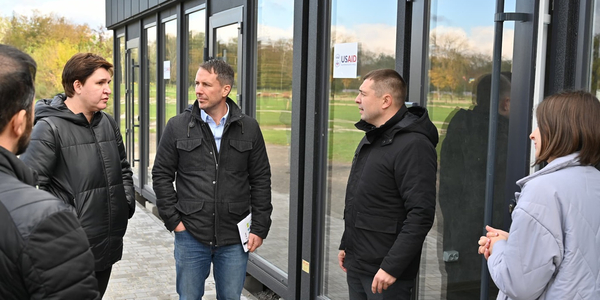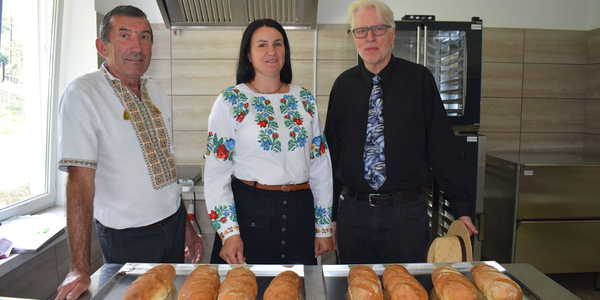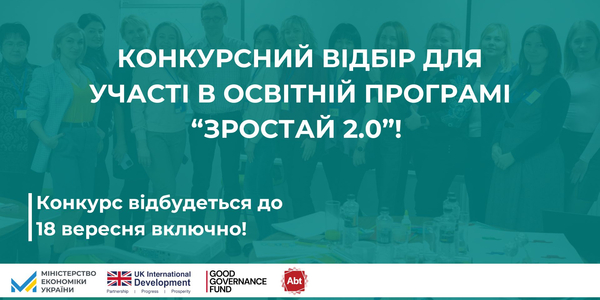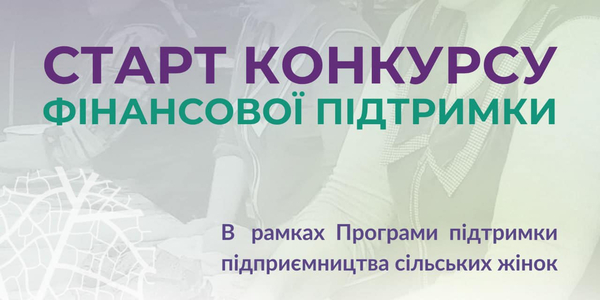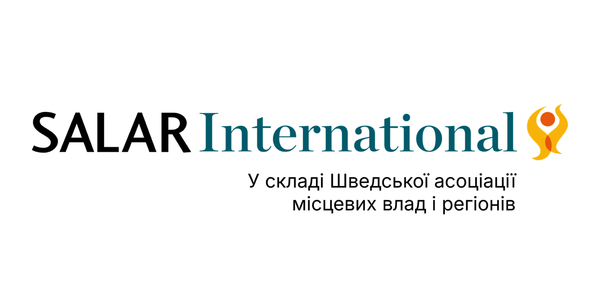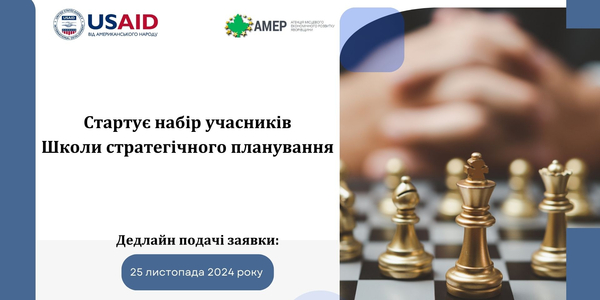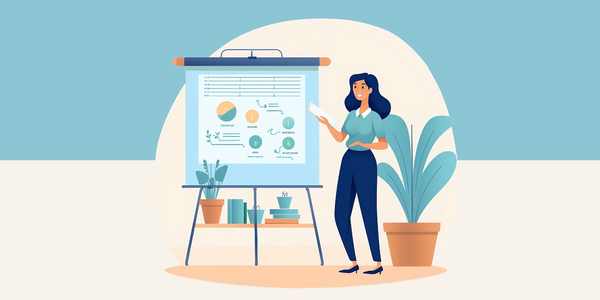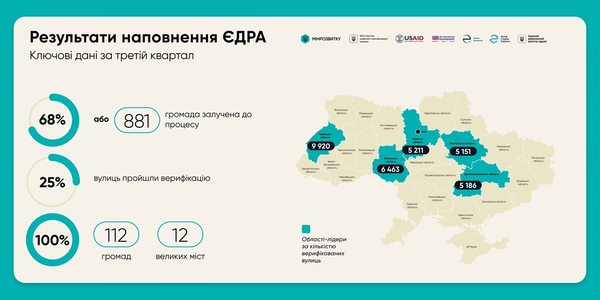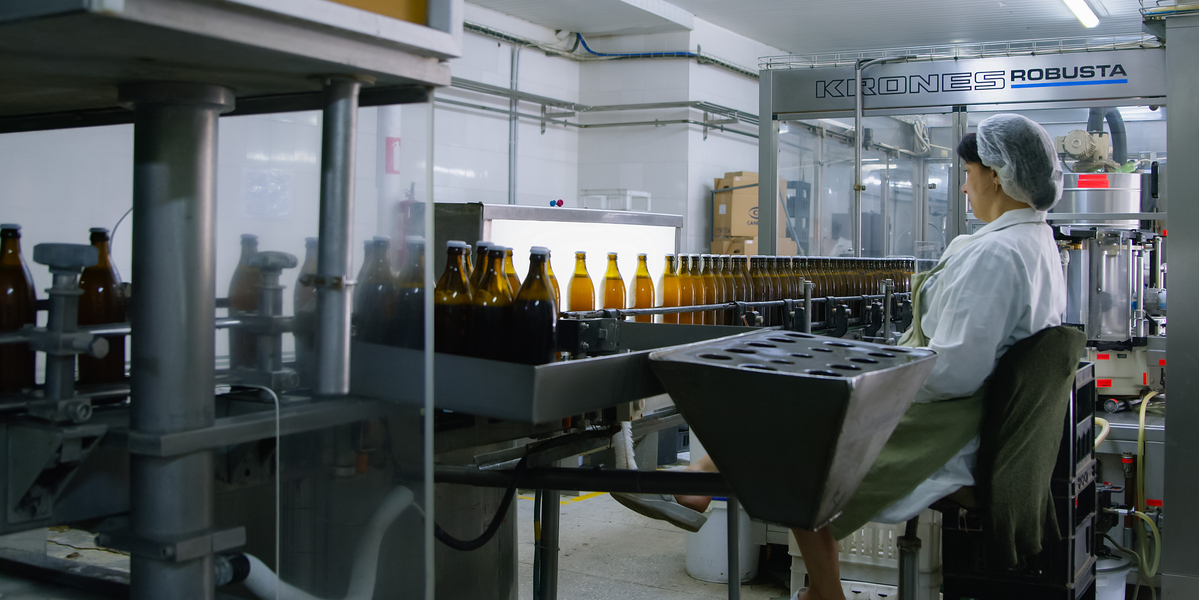
The Berdychiv municipality is small — two villages and only one city — but quite industrialised: there are businesses, factories, its own brewery, a furniture factory and a meat processing plant. Despite the full-scale invasion, local businesses did not stop and even accommodated relocated businesses from the front-line regions of Ukraine.
Serhii Orliuk, head of the municipality, talks about the challenges faced by the municipality and how they managed to overcome them.
“War is the fear with which people lived”
War is not like an earthquake that comes, rages for a few minutes and leaves you to deal with the consequences. War is the fear with which people lived. First of all, everyone rushed to build fortifications. All enterprises focused on one single goal, to protect the town and the municipality.
During this period, the businesses faced an economic downturn, since it was not the production time. People simply wanted to survive. At the same time, everyone understood that unless we defended our municipality and Ukraine, who would have a use for these businesses? So there was cooperation among people, and among businesses, and among municipalities.
At one of the first meetings, we abolished rent for municipal property to make it easier for people to get through this period financially. Businesses that leased premises also reduced their fees. Everyone stepped up.
We were cheered up by the fact that all the foreign investors who had been present here before the war remained. We helped as much as we could. For example, we organised transportation of employees or movement during curfew hours — we tried to respond to all requests promptly.
“They are not strangers, they are one of us”
The business community always says, “Just don’t road-block us, and we will manage everything ourselves”. Entrepreneurs from other regions who were saving their businesses had this mentality as well. Our task was to get in touch with local businesses and help as much as possible: to expand construction sites, to help find partners who can lease premises, to negotiate. They needed to understand that we care. That we were there for them, ready to help at any stage of cooperation. They are not strangers, they are one of us. Now is not the time to divide into right-bank and left-bank, east and west.
There are businesses in which people have poured their soul, heart and money. Today they need help to survive. After all, behind these businesses are people, and behind these people are their children, their parents. If our situation is better than that along the front lines, we have a duty to help.
Importantly, it is also about the economy of Ukraine. We think about the community, about how Ukraine will live after the war. The war will definitely end, and I am convinced of our victory.
“With support like that, we are not afraid to move forward”
Discussing the economy of the municipality without concrete prospects and plans is empty talk. We have to understand how to move forward. The experts of the U-LEAD with Europe Programme helped us a lot here.
As soon as we got over the first shock of the war, we started work on the investment passport. It was important that we did not work from scratch. U-LEAD gave us professional advice: what needs to be done so as not to reinvent the wheel and make the same mistakes. Trust me, all these meetings and presentations that were held, they were very educational, and we absorb as much as we can.
Before the war, we had only two sister cities. For Berdychiv, this is completely inadequate. So one of the first tasks was to seek friendly relations with Europe. We have made lots of visits; some have seen us, some have not. But, importantly, we did not have an investment passport then.
Today, it is the primary mandatory document which we take with us abroad in search of investors. For example, the trip to Lithuania was very productive, and negotiations have just finished in Poland. Our work is ongoing. Moreover, wherever we go, we always take with us entrepreneurs who can talk about their business.
One of our great assets today is cooperation with the Polish city of Częstochowa. A huge city with a population of 250,000. So, when we signed the Memorandum of Cooperation, other cities treated us a little differently, approached us themselves. We still have work to do with the Lithuanian city of Alytus and two German cities.
We are sincerely grateful to U-LEAD with Europe for this. You feel much stronger with them.
